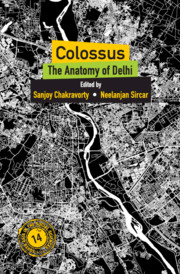7 - Crime: Victimization in New Delhi; Insights from New Data
Published online by Cambridge University Press: 31 July 2021
Summary
Introduction
In recent years, concerns about public safety have grown in prominence in India's public discourse. An important catalyst in this regard was the tragic 2012 “Nirbhaya” gang rape in New Delhi, which captured headlines across India and around the world. The gruesome facts of the case led to a popular outcry and the subsequent establishment of the Justice J. S. Verma Committee, which was given a mandate to recommend criminal law amendments that would hasten the prosecution—and enhance the punishment—of those accused of committing sexual assault against women.
This popular reengagement with questions of public order and public safety has been mirrored by heightened rhetoric, if not decisive action, on the part of the Government of India. Since coming to power in May 2014, Prime Minister Narendra Modi has regularly highlighted improving public safety as an important priority for his government. For instance, in a 2015 address to law-enforcement officials, Prime Minister Modi discussed the need for a “flexible institutional framework” to ensure improved citizen–police engagement. In 2017, NITI Aayog unveiled its “3-Year Action Agenda”—a medium-term reform blueprint for economic and governance reforms. The roadmap contained a discussion of rule of law reform in which police modernization finds mention as a critical reform element. The discourse on public safety, however, is not limited to elite circles. In the pivotal Uttar Pradesh (UP) assembly elections in the spring of 2017, Modi's Bharatiya Janata Party (BJP) made “restoring law and order” a central plank of its election campaign. In fact, one of its signature slogans for the campaign was Na Goonda Raj, Na Bhrashtachar (“No thug rule, no corruption”).
Against this backdrop of growing concern about public safety is the discouraging reality of the Indian police. Over the years, numerous studies have identified deep-seated infirmities that plague the performance of the police. Somewhat surprisingly—given the centrality of the police's role in any sovereign state and its well-documented weaknesses—the police remain a grossly understudied institution.One reason for this relative ignorance is poor data quality. This is a result of multiple factors, including official underreporting as well as a possible social stigma in reporting certain types of crimes.
- Type
- Chapter
- Information
- ColossusThe Anatomy of Delhi, pp. 188 - 214Publisher: Cambridge University PressPrint publication year: 2021

